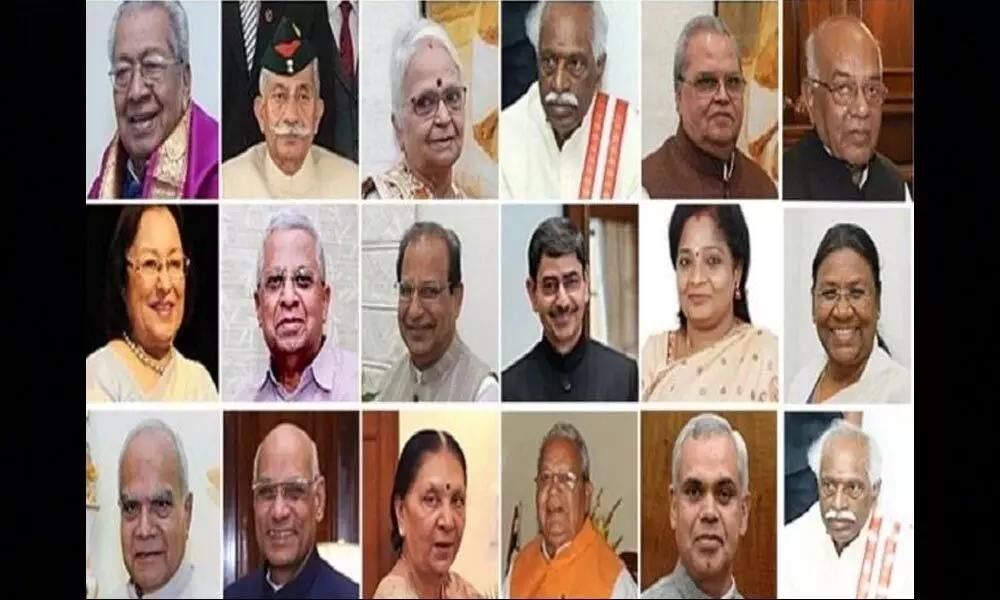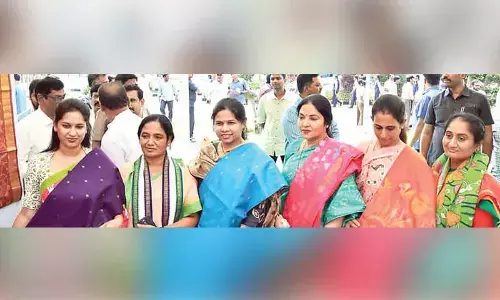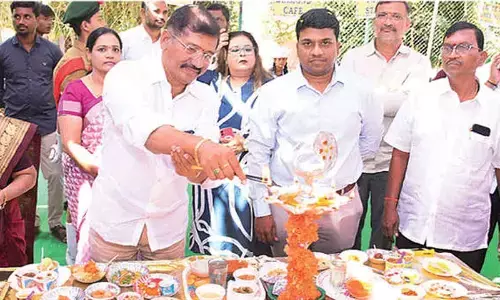Arbitrary appointments of Governors

Arbitrary appointments of Governors
The roots of conflicts between Governors and The Chief Ministers lie in the absolute arbitrariness in appointment and removal of Governors
The roots of conflicts between Governors and The Chief Ministers lie in the absolute arbitrariness in appointment and removal of Governors. The source of life of the institution of the Governor in Indian Constitution is the pleasure of the President. Black's Dictionary defines `Pleasure Appointment' as the assignment of someone to employment that can be taken away at any time, with no requirement for notice or hearing. In common meaning, the Centre selects Governors at their whims and fancies. Of all appointments that happen to higher positions of governance in this country today, Governors selection happens in most arbitrary manner, and this is the source of arbitrary functioning of the persons occupying Raj Bhawan.
There is a distinction between the doctrine of pleasure as it existed in a feudal set-up and the doctrine of pleasure in a democracy governed by rule of law. In a nineteenth century feudal set-up unfettered power and discretion of the Crown was not an alien concept. However, in a democracy governed by Rule of Law, where arbitrariness in any form is eschewed, no Government or Authority has the right to do what it pleases. The doctrine of pleasure does not mean a license to act arbitrarily, capriciously or whimsically. It is presumed that discretionary powers conferred in absolute and unfettered terms on any public authority will necessarily and obviously be exercised reasonably and for public good . A Constitution Bench of Supreme Court in Union of India v. Tulsiram Patel - explained the origin of the doctrine:
"In England, except where otherwise provided by statute, all public officers and servants of the Crown hold their appointments at the pleasure of the Crown or durante bene placito ("during good pleasure" or "during the pleasure of the appointor") as opposed to an office held dum bene se gesserit ("during good conduct"), also called quadiu se bene gesserit ("as long as he shall behave himself well"). When a person holds office during the pleasure of the Crown, his appointment can be terminated at any time without assigning cause. The exercise of pleasure by the Crown can, however, be restricted by legislation enacted by Parliament because in the United Kingdom Parliament is sovereign. ......"
A classic statement of Administrative Law is necessary in this context:
"The common theme of all the authorities so far mentioned is that the notion of absolute or unfettered discretion is rejected. Statutory power conferred for public purposes is conferred as it were upon trust, not absolutely - that is to say, it can validly be used only in the right and proper way which Parliament when conferring it is presumed to have intended .
The so called `Doctrine of Pleasure' in its absolute unrestricted application does not exist in India. It is severely curtailed in case of government employment, which can be found in clause (2) of Article 310 and clauses (1) and (2) of Article 311. Even in regard to cases falling within the proviso to clause (2) of Article 311, the application of the doctrine is not unrestricted, but moderately restricted in the sense that the circumstances mentioned therein should exist for its operation. The Canadian Supreme Court in Wells v. Newfoundland has concluded that "at pleasure" doctrine is no longer justifiable in the context of modern employment relationship. It has no place in public employment relationship.
The Constitution of India has certain provisions to the holding of office during the pleasure of the President without any restrictions or limitations are Article 75(2) relating to ministers, Article 76 (4) relating to Attorney General and Article 156(1) relating to Governors. Similarly, Article 164(1) and 165(3) provides that the Ministers (in the States) and Advocate General for the State shall hold office during the pleasure of the Governor.
Article 156 (1) says that the Governor shall hold office during the pleasure of the President. In fact, President's pleasure is not his. It has to be pleasure of the Prime Minister. It further translates into the pleasure of the ruling party. The whims and fancies of Prime Minister or his/her party will decide the Head of the State, and nothing else. If there is any arbitrary appointment that can happen according to Constitution in India, it is to the gubernatorial position. Doctrine of Pleasure of Governor is, now, in juxtaposition to democratic power of the Chief Minister.
We are a republic because the public representatives elect the President, as against the Kings and Queens ruling by succession in dynasty. The elected President will select the Governor, on recommendation of the Prime Minister.
Eligibility of Governor
Article 157 and Article 158 of the Constitution of India specified three eligibility requirements for being a governor – he/she must be at least 35 years of age, should not be a member of the either house of the Parliament or House of the State Legislature, and should not hold any office of profit.
One constitutional convention that is still followed is that the governors are not appointed to lead the states where they reside, though not prescribed in the constitution.
The Governor is a constitutional head of the State Executive, and has, therefore, to act on the advice of a Council of Ministers under Art. 163. The Governor is, however, made a component part of the State Legislature under Art. 164, just as the President is a part of Parliament. The Governor has a right of addressing and sending messages to under Arts. 175 and 176, and of summoning, proroguing and dissolving under Art. 174, the State Legislature, just as the President has in relation to Parliament. He also has a similar power of causing to be laid before the State Legislature the annual financial statement under Art. 202(1), and of making demands for grants and recommending 'Money Bills' under Art. 207 (1). In all these matters the Governor as the constitutional head of the State is bound by the advice of the Council of Ministers . The house of Governor in state headquarters is called Raj Bhavan. The Governors are not public representatives with responsibility or accountability like the Rashtrapathi or the Prime Minister. During the negotiations for integration of States into present political form of India, the former princes and kings were given the status of Governorship and asked to rule from Raj Bhawan. But this position is changed when the statesman and eminent political personalities, who had some active years in running the Government are selected as Governors. There were certain political negotiations behind giving this luxurious position of a ruler. Burgula Ramakrishna Rao was appointed as Governor, so that the opposition to Integration of Andhra and Telangana states was removed in 1956. Similarly, Dr. Marri Chenna Reddy was appointed as Governor of Uttar Pradesh to defuse the separate Telangana agitation in 1970, after he merged the regional party with ruling Congress party then, Dr Reddy was sent to Rajbhawan or Jaipur. Very interestingly, he became Chief Minister by winning elections as Congress leader, in 1978, after the Congress was split during Janata rule at Delhi. After couple of years, Dr Reddy was replaced with another Chief Minister in Andhra Pradesh, and then he was accommodated as Governor of Tamil Nadu. That means the gubernatorial position was used for political negotiations. But these two persons gained the status of statesman. When such appointments were carried on for some decades, the Delhi was using, abusing and misusing, besides not using when necessary, Article 356 to control the politics in States. The office of Governor, has thus acting as per the wishes of the Delhi ruling parties. They are called plush old age homes because very old persons were appointed. Now this criticism is no more valid, because very young ruling party leaders are sent as Governors to Rajbhawans.
There is no provision in the Constitution to check arbitrariness in selecting a person to this high office, with very high powers, without fixing any responsibility and for fixing the consequences for anti-Constitutional functioning.
(The author is Dean & Professor, School of Law, Mahindra University, Hyderabad, and former Central Information Commissioner) (The opinions expressed in this column are those of the writer. The facts and opinions expressed here do not reflect the views of The Hans India)











